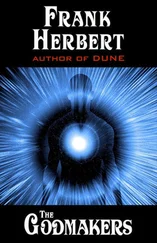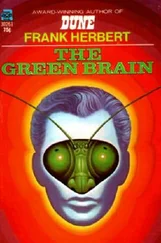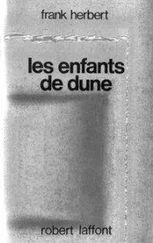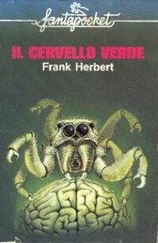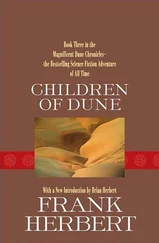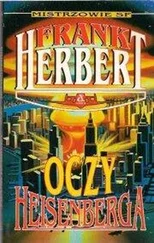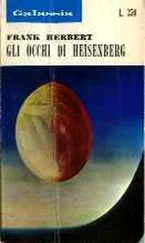Frank Herbert - Destination - Void
Здесь есть возможность читать онлайн «Frank Herbert - Destination - Void» весь текст электронной книги совершенно бесплатно (целиком полную версию без сокращений). В некоторых случаях можно слушать аудио, скачать через торрент в формате fb2 и присутствует краткое содержание. Год выпуска: 1965, Жанр: Фантастика и фэнтези, Эпическая фантастика, на английском языке. Описание произведения, (предисловие) а так же отзывы посетителей доступны на портале библиотеки ЛибКат.
- Название:Destination: Void
- Автор:
- Жанр:
- Год:1965
- ISBN:нет данных
- Рейтинг книги:5 / 5. Голосов: 1
-
Избранное:Добавить в избранное
- Отзывы:
-
Ваша оценка:
- 100
- 1
- 2
- 3
- 4
- 5
Destination: Void: краткое содержание, описание и аннотация
Предлагаем к чтению аннотацию, описание, краткое содержание или предисловие (зависит от того, что написал сам автор книги «Destination: Void»). Если вы не нашли необходимую информацию о книге — напишите в комментариях, мы постараемся отыскать её.
Destination: Void — читать онлайн бесплатно полную книгу (весь текст) целиком
Ниже представлен текст книги, разбитый по страницам. Система сохранения места последней прочитанной страницы, позволяет с удобством читать онлайн бесплатно книгу «Destination: Void», без необходимости каждый раз заново искать на чём Вы остановились. Поставьте закладку, и сможете в любой момент перейти на страницу, на которой закончили чтение.
Интервал:
Закладка:
But Flattery recalled another part of Hempstead's possibly garbled message: "Unknown area derived mathematically."
What if that were pretty close to Hempstead's actual words? Flattery asked himself. An unknown of some kind derived mathematically. The ship had encountered a mass/speed problem.
Bickel said, "Raj, drop the speed another two points and hold. We'll want regular checks on mass/speed variations from here on out."
"Complying," Flattery said. "Report in order." He turned to the micro-controls, dropped them two more notches.
"Track graph declines on an even slope," Prudence said.
"Mass reference agrees," Timberlake said. "Ion emission normal."
"Temperature holding normal," Bickel reported. "Doppler comparison is positive-zero."
Bickel looked at those two thin black needles of the Doppler comparator. They were what put the bite in this emergency. They provided positive checks on speed through Doppler reference to fixed astronomical bodies. The Doppler comparison and change in speed had agreed one-for-one.
Bickel felt he knew only one area of probability to explain what had happened, but the area involved a theory that had always been treated as a kind of mathematical game. You first had to assume the universe contained two groups of matter, each moving faster than the speed of light in relation to the other. Then the Cavendish extrapolation on gravitational theory produced negative transformations. Wide holes were opened in the Newtonian theory that two bodies always attract each other with a force proportional to the square of the distance between them.
It was that word always and the implication that all matter exerted gravitational attraction, Bickel thought.
"I do not understand what happened," Flattery said, "but I have the distinct feeling we were close to the brink."
"The brink of what?" Prudence demanded. Fear was plain in her voice.
"We were close to running wild out of the solar system," Bickel said. "Out of control, unable to maneuver. Quite likely, we were close to being hurtled into another dimension."
"Without a prayer of escape," Timberlake said.
"The negative transformations in grav theory," Prudence whispered.
"What?" Timberlake barked.
"The implicit energy exchange for enormous mass shifts near the speed of light," Prudence answered him. "The negative forms in the equations don't all cancel out until you build hypothetical transformations beyond the speed of light. There is a region of mass/speed change wherein two bodies theoretically repel each other rather than attract."
"Now," Bickel said, "how do we tell Hempstead and his boys about this without blowing the whole show?"
"We've already blown the whole show," Timberlake growled. "The computer -"
"Isn't necessarily wrecked," Bickel said. "Our life systems still work. Ship servos and sensors appear to be in order. I get consistent replies to demands for information."
"Consistent doesn't mean correct," Timberlake said.
"Was Hempstead telling us to cease and desist?" Flattery asked. "If he was..."
"We don't know," Bickel said. "As long as we don't know, we don't have to obey."
Or disobey, Flattery thought. "How is it the computer seems to function on information demand, but not for AAT translation?"
"That could mean only one band to debug," Prudence said. "If it does..." She broke off staring at Bickel.
Bickel had his eyes closed. Perspiration beaded his forehead. The circuitry was as clear in his mind as though projected there from outside himself. He had never completely disconnected the Ox from the AAT system which they had used for the Ox's interpretive routines.
An empty sensation expanded through his chest as he realized every signal from outside into the AAT had gone through the Ox into the computer - there to be lost, there to mix up the AAT translator loops.
"You didn't disconnect the plugboard from the Ox," Timberlake whispered.
"But my computer readout comes through my AAT board," Bickel said. He could hear the desperation in his own voice. "Every program demand I put on the computer went through those same Ox circuits!"
"You were using subroutines with known addresses," Prudence pointed out.
"And everything you asked for has been scattered through the entire system and lost," Timberlake said.
"Has it?" Bickel asked. He opened his eyes. There was only one logical way to be certain, of course. It would not do any more damage than already, had been done... if there was damage.
We didn't think of Bickel cutting us off from UMB this way, Flattery thought. Destroying the translator loops!
Without the translator system to decode the multirepetitive laser-burst messages, the umbilicus crew might just as well use hand signals for its messages to and from Moonbase. Bickel could build a radio transmitter, of course. It would take only a few watts to punch a message across these distances, but no preparations had been made at UMB for such a communications method. And the number of eavesdroppers would be enormous.
Carefully, because he had to be certain the first time, Bickel switched five patches in his AAT board, triple-checked them.
"What're you doing?" Timberlake demanded.
"Be quiet," Prudence ordered, as she recognized what Bickel intended.
"But he's already -"
"A diagnostic routine," Bickel said. "We'll use a simulsynchronous B-register search with a repeat on our original test of the Ox circuitry. If harm has already been done, this will just go right through the same channels. It can't do any more harm."
"And the B-register search could tell us where our data went," Timberlake said. "Yeah."
"Are you sure?" Flattery asked.
"The technique is right," Prudence said.
Working quietly, triple-checking, Bickel patched together the necessary program. He took a deep breath, sent the first elements of the diagnostic routine through the inputs, setting the balance of the test for off-line operation. He had to keep a constant check on this, key each step himself.
Presently, he began to get DDA output. He put it on conditional transfer with printout at each step in the control sequence.
He felt breathing at his shoulder, looked up to see that Prudence had abandoned her action couch, knelt beside him to stare up at the readout.
"The data has been shifted, not lost," she whispered.
"That's how it looks," Bickel said.
"It might as well be lost!" Timberlake barked.
"No," Bickel refuted him. "The computer's fully operative as long as we route everything through the Ox."
"Why didn't the AAT work?" Timberlake demanded.
"Come off that, Tim," Bickel said. "You helped me build that test setup."
"The incoming messages were going through the AAT circuits twice," Timberlake said. "Sure."
"The bits canceled themselves out all along the line," Bickel said. "We probably didn't get a fifth of the message."
"It did seem short," Prudence said.
"That message is the only thing we've really lost," Bickel said. "I'll ask for a repeat on -"
"Wait!" Flattery said.
"Yes?" Bickel looked at him.
"What do you tell UMB happened to the original message!" Flattery asked. He glanced away from the big board, met Bickel's gaze. "And what if they were telling us to cease and desist?"
"You know something," Timberlake said, "the beginning and end of Hempstead's message didn't seem to be garbled at all."
"Standard call and signoff," Bickel said. "They could be recognized and translated from the smallest fractional bits."
"But the message load was lightest at the beginning," Timberlake said. "And that could be part of the explanation there. You'd get minimum cancellation. We might be able to salvage more of the message... especially in the first parts before the load jammed it up."
Читать дальшеИнтервал:
Закладка:
Похожие книги на «Destination: Void»
Представляем Вашему вниманию похожие книги на «Destination: Void» списком для выбора. Мы отобрали схожую по названию и смыслу литературу в надежде предоставить читателям больше вариантов отыскать новые, интересные, ещё непрочитанные произведения.
Обсуждение, отзывы о книге «Destination: Void» и просто собственные мнения читателей. Оставьте ваши комментарии, напишите, что Вы думаете о произведении, его смысле или главных героях. Укажите что конкретно понравилось, а что нет, и почему Вы так считаете.

